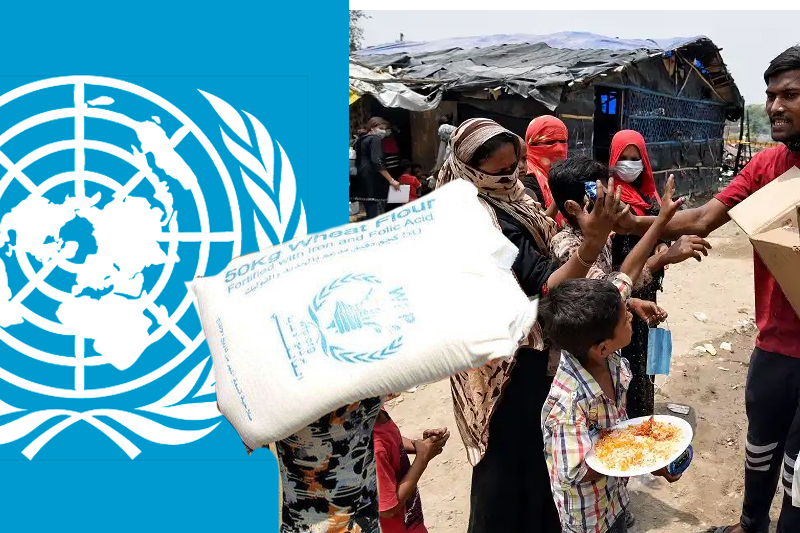
UN urges for urgent funding to avoid food ration cuts for Rohingya refugees
Last updated on February 20th, 2023 at 05:40 am
A growing number of experts are raising concerns over the UN’s decision to cut food rations for Rohingya refugees in Bangladesh ahead of the Muslim holy month of Ramadan, warning about catastrophic consequences.
The Asian country is home to over 1.2 million Rohingya Muslims, the majority of whom fled violence and persecution in Myanmar during a brutal military crackdown in 2017.
Despite immediate appeals for donations by the UN World Food Programme Rohingya Refugee Response, foreign aid for the group has been depleting since 2020. The World Food Programme (WFP) said it urgently requires $125 million to avert ration cuts and has warned about reducing the value of its food assistance by 17% starting March, from $12 per person to $10.
The UN body has also cautioned against another round of deeper reductions, if no new funding commitments are made by April.
Keep Reading
The ration cuts ahead of Ramadan are expected to turn food insecurity and child malnutrition in Bangladesh’s Rohingya camps – which are already the largest refugee settlement in the world – into a much bigger crisis, triggering serious health problems and affecting children’s growth and life expectancy.
“The Rohingya, survivors of genocidal attacks by the Myanmar military, are now further victimised by the failure of the international community to ensure their basic right to food,” two UN special rapporteurs, Michael Fakhri and Thomas Andrews, said in a Human Rights Council report.
Bangladesh is not a signatory to the 1951 UN Refugee Convention. The Rohingya refugee population in the country cannot be legally employed to earn their livelihood, and even cannot freely leave their camps to work with the local community towards any business activity.
The group is heavily dependent on aid, and if it is lacking, more of them will try to move to other places in Bangladesh, which may affect the security situation and trigger social problems. “The Rohingya are not acquainted with the social system of Bangladesh and vice versa,” said Mohammed Nur Khan, renowned Bangladeshi rights activist and migration expert.
Read More:- Major Updates: Death toll tops 45,000, three rescued after 11 days under Turkey rubble




